Here’s the reality no one talks about: most successful executives are digitally illiterate.
Not in the “can’t send an email” way but in the much more dangerous “can’t tell if that AI-generated report is accurate” or “can’t spot the misinformation in their strategy briefing” way.
As someone who studies psychology, technology, and leadership, I see smart leaders making expensive mistakes because they’re missing four critical literacy skills. The cost? Poor decisions, wasted resources, and strategic blind spots that competitors exploit.
Let me walk you through these four literacies and why they’re not just “nice to have” anymore—they’re essential for effective leadership.
1. Media Literacy: Beyond “Is This Source Reliable?”
What it really means: Understanding the psychology behind every piece of content you consume: who created it, why, and what they want you to do.
Why leaders struggle: You’re used to getting information from trusted sources. But when your “trusted” industry publication runs a sponsored piece that looks like editorial content, can you spot the difference? When your team presents competitor analysis based on their marketing materials rather than actual performance, do you catch it?
The real cost: One Pew Research study found that only 26% of Americans could consistently distinguish between factual statements and opinions in news stories. If you’re making strategic decisions based on opinion pieces disguised as analysis, you’re building your strategy on quicksand.
Quick leadership application: Before your next big decision, ask yourself: “Who benefits if I believe this information?” If the answer isn’t clear, dig deeper.
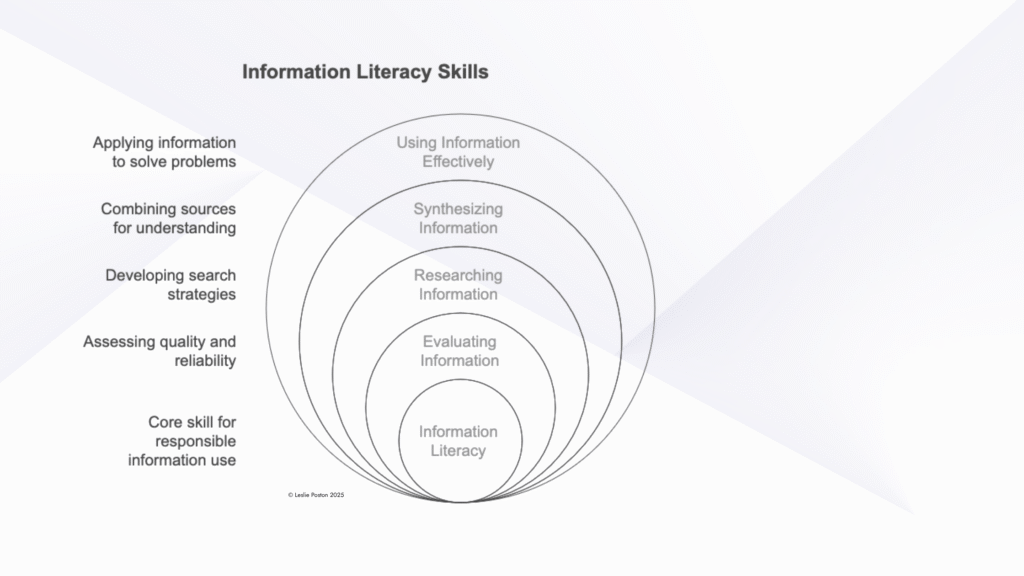
2. Information Literacy: The Skill That Separates Great Leaders from Lucky Ones
What it really means: Knowing how to find reliable information, evaluate it properly, and apply it effectively. It’s the difference between data-driven decisions and data-overwhelmed paralysis.
Why leaders struggle: You have access to more information than any generation in history. But more data doesn’t automatically equal better decisions. Most executives I work with are drowning in reports, analytics, and “insights” but struggle to identify what actually matters.
The real cost: The Federal Trade Commission reported that Americans lost $8.8 billion to fraud in 2022, with much of it targeting people who couldn’t critically evaluate information. If individuals lose billions, imagine what organizations lose through poor information evaluation.
Quick leadership application: For your next major decision, can you trace your key supporting information back to its original source? If not, you’re operating on assumptions, not intelligence.
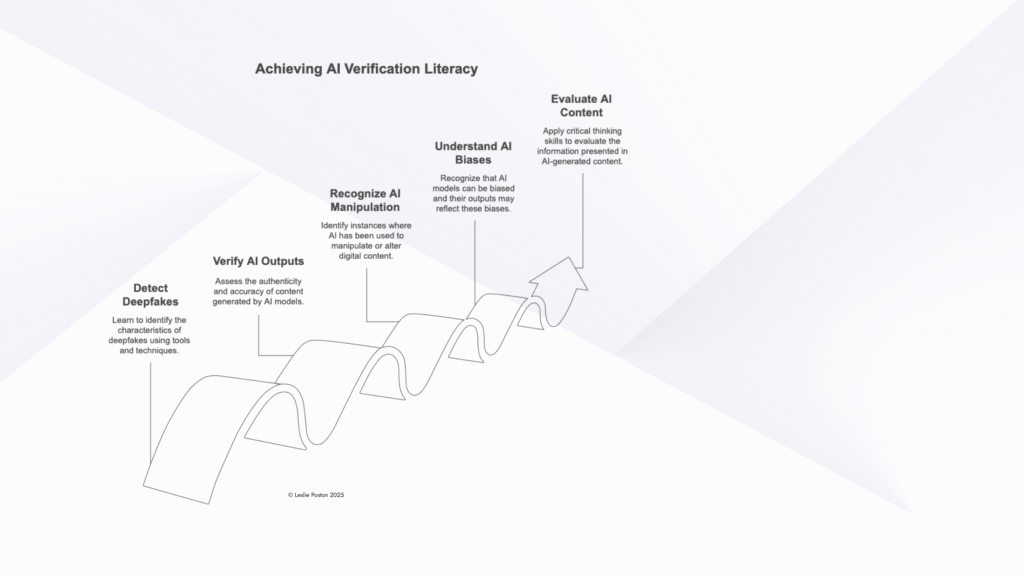
3. AI Verification Literacy: The New Skill That’s Already Critical
What it really means: Understanding what AI can and can’t do, recognizing AI-generated content, and knowing when to trust (or verify) AI outputs.
Why leaders struggle: AI tools are proliferating faster than understanding of their limitations. Leaders are using AI for everything from market research to strategic planning without understanding concepts like “AI hallucinations” or training data bias.
The real cost: If you’re making decisions based on AI analysis without understanding its limitations, you’re essentially letting an extremely confident intern run your strategy. An intern who sometimes makes up facts but always sounds very certain about them.
Quick leadership application: Next time you or your team uses AI-generated analysis, ask: “What could this AI not know that would change our conclusion?” Always verify AI insights with human expertise and real-world data.
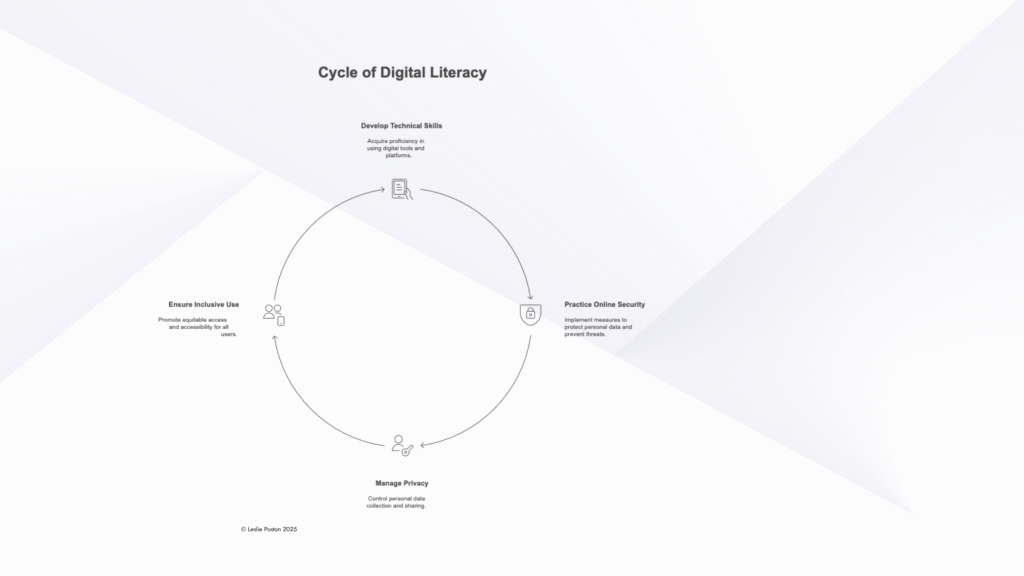
4. Digital Literacy: More Than “Knowing How to Use Technology”
What it really means: Understanding how digital platforms work, protecting yourself and your organization from digital threats, and navigating online spaces effectively and safely.
Why leaders struggle: Many executives delegate digital security and online presence to “the IT people.” But understanding how algorithms work, how data is collected and used, and how to protect sensitive information isn’t just an IT issue, it’s a strategic competency.
The real cost: Digital illiteracy contributes to everything from data breaches to missed market opportunities. When leaders don’t understand how their customers actually behave online, they make marketing and product decisions based on outdated assumptions.
Quick leadership application: Can you explain how your organization’s data is collected, stored, and potentially vulnerable? If not, you’re flying blind in an increasingly digital marketplace.
Why These Skills Work Together (The Leadership Advantage)
Here’s what makes truly effective leaders different: they understand how these four literacies interconnect.
When evaluating a new market opportunity, they use:
Media literacy to understand the bias in industry coverage
Information literacy to trace claims back to reliable sources
AI verification literacy to question AI-generated market analysis
Digital literacy to understand how online customer behavior might differ from reported behavior
The result? Better decisions, fewer expensive mistakes, and competitive advantages that come from seeing clearly while others operate in digital fog.
The Questions Every Leader Should Ask
Before your next major decision, run through this quick checklist:
Media Check: Who benefits if I believe this information? Information Check: Can I trace this back to reliable original sources? AI Check: What limitations might AI tools have missed?
Digital Check: Do I understand how this digital system actually works?
If you can’t answer these questions confidently, you’re not ready to make the decision.
The Bottom Line
These aren’t “tech skills” you can delegate to younger team members. They’re critical thinking skills disguised as digital competencies.
The leaders who develop these literacies will make better decisions, avoid expensive mistakes, and spot opportunities others miss. Those who don’t will find themselves increasingly vulnerable to misinformation, manipulation, and strategic blindness.
The choice is yours: stay digitally literate or become strategically irrelevant.
Want to dive deeper into how these digital literacy skills impact leadership decisions?
I explore these concepts in much more detail, including my new “Digital Literacy Ecosystem” framework and research on the “Digital Resilience Index,” in my podcast PsyberSpace. Listen to the full episode here for practical strategies, research insights, and tools to assess your own digital literacy skills.
Because the most expensive mistake you can make as a leader is thinking these skills are optional.

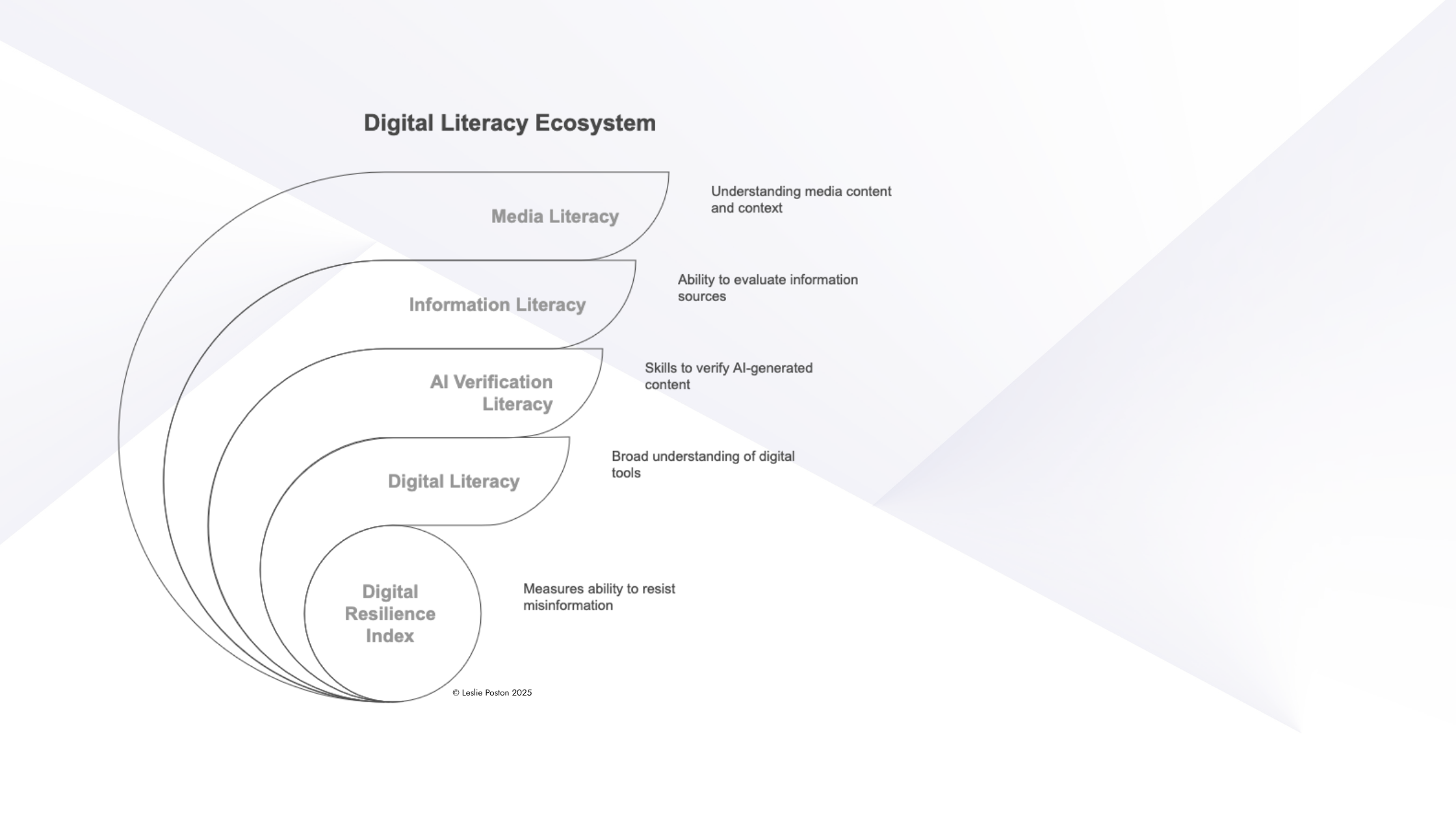
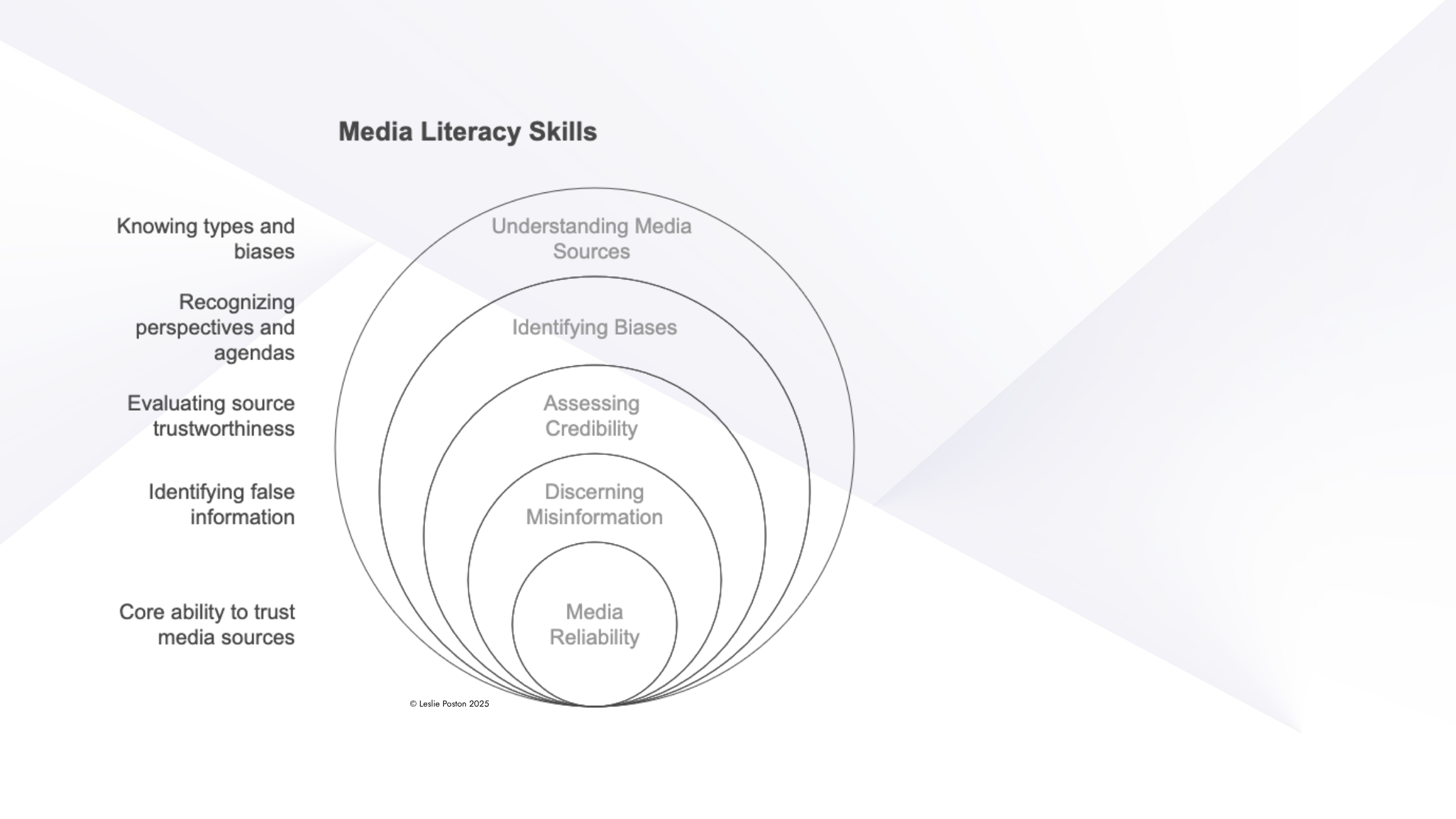











0 Comments